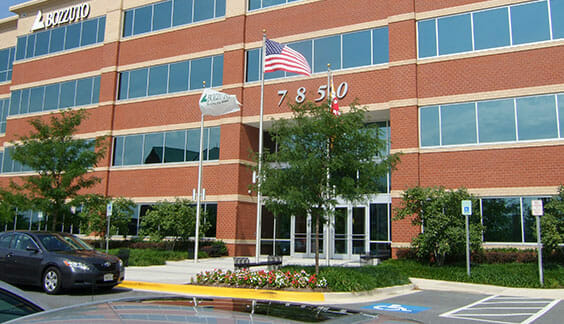(CARS, MONEY, VALUABLES AND REAL PROPERTY)
Many if not most Maryland Criminal Defense Attorneys are unfamiliar with and inexperienced in Maryland’s Forfeiture laws and therefore unwilling to become involved in that part of your case.
At Houlon Berman, our co-managing partner, Richard Finci and Senior Associate, Jeremy Feldman, have years of experience handling the seizure and forfeiture elements of our client’s Criminal and Civil Forfeiture matters. In fact, over the years, we have recovered literally millions of dollars of our client’s cash, automobiles, jewelry and real property (homes and land). We are known throughout the State of Maryland as experts in Forfeiture law and Richard Finci has lectured other lawyers on the subject on many occasions, testified before the Maryland Legislature, handled reported cases in the Maryland Courts of Appeal and even assisted in the writing of some of the current Maryland forfeiture statutes. The materials from our latest Forfeiture Law seminar can be seen here.
Criminal defense attorney’s do not like to work on Forfeiture cases mostly because they are unfamiliar with the statutory scheme for forfeiture in Maryland, because they are not comfortable with the Civil rules of procedure which apply and finally because there is no conviction required to forfeit property (accept real property where conviction of a felony as to all owners of the property is required before forfeiture may be even considered) and that is frustrating to most Criminal Defense Attorney’s. At Houlon Berman, we want to help you with the Forfeiture part of your case and represent you in the related Civil Forfeiture proceedings.
Maryland Courts do not generally utilize Criminal forfeiture proceedings (which we define as forfeiture directly connected to an underlying criminal case although from time-to-time, we have been able to negotiate the forfeiture matters through a related criminal case).
The Maryland forfeiture law is generally contained in the Maryland Criminal Procedure Code Ann. Sections §§12-101, et seq. (https://law.justia.com/codes/maryland/2016/criminal-procedure/title-12/) . These laws control Maryland seizures of cash/bank accounts, automobiles, real property (homes and land) and other valuables. Certain time limits are set forth for seeking forfeiture after the seizure of property and those time limits are different for different types of property. With respect to automobiles, the State must start forfeiture proceedings by filing a Complaint for Forfeiture within 45 days of the original seizure of your vehicle. With regard to money and other property, the State must file their Complaint within 90 days of the end of any related Criminal case. If they do not, you must seek return of the property within 1 year of the end of the criminal case (so you have a 9-month window) or the property (usually money) is forfeited to the State by operation of law.
The most important recent change in Maryland Forfeiture law can be found at Md. Crim Procedure Code Ann. §12-312 (https://law.justia.com/codes/maryland/2016/criminal-procedure/title-12/subtitle-3/section-12-312/ ) . Under the former law, money found in close proximity to drugs (an undefined and broadly interpreted law in the past causing money found in one’s pocket next to a small quantity of weed, for example, to be forfeitable) was forfeitable. Under this new law, proceeds of drug crimes are forfeitable but only when the person committed a serious drug crime, the property is shown to have been acquired during the crime and where there is no other likely source for the property. Importantly, the State must prove all of this by clear and convincing evidence, a standard of proof less then the required proof beyond a reasonable doubt, but greater then the probable cause standard that applied in close proximity cases in the past. Moreover, the law excludes misdemeanor possession of marijuana as a basis for forfeiture.
There are also many ways to defend Automobile forfeiture cases. We often start these cases with a Motion for Return of the Seized Property which will be ordered by the Court if a bond is posted for the equity value of the vehicle (Blue book value less amount owed on the note). Losing the use of your vehicle when you have a loan on it is a double hit and we try to avoid that double hit whenever reasonably possible with these Motions. Minimally, we need to help you control your expenses and your losses when you have a loan on your automobile. These situations can be more economically harmful and have greater long-term impact with regard to your credit rating and your employment then the criminal case itself so it cannot be ignored!
Under Supreme Court and Maryland case law, both the 4th and 8th Amendments apply to Forfeiture cases. Of course, the 4th Amendment protects citizens from unreasonable searches and seizures. If there has been a violation of the 4th Amendment leading to the seizure of your property, the Court may not order Forfeiture of that property.
The 8th Amendment provides that no citizen shall be subjected to excessive punishment, in this case excessive fines. There are different standards and tests which apply to different sorts of property under the 8th Amendment analysis. These are matters to be discussed at our initial consultation. But the bottom line is that you cannot be punished in Maryland in an amount greater then the maximum fine for the offense where the money cannot be shown to be an instrumentality of the actual offense you committed and proceeds forfeiture requires proof that the actual property seized is derived from a criminal offense. Otherwise, the Court should find forfeiture to be excessive.
There is much more to discuss about Maryland Forfeiture law and how it relates to your criminal case. We are happy to sit down and discuss these issues with you. Contact our office via e-mail through this website or call our office directly for a free consultation.


